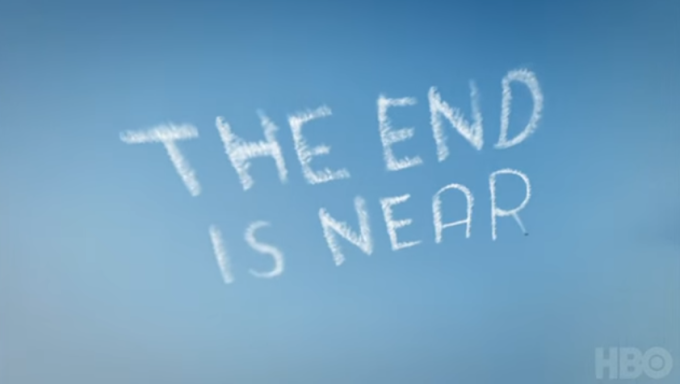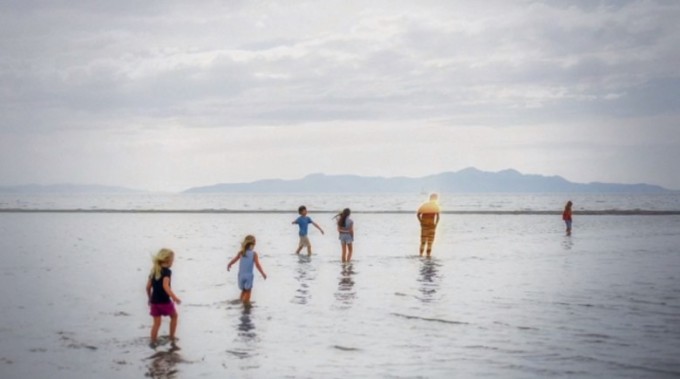Almost seven years ago on May 23rd, 2010, the series Lost aired it’s two part finale, titled “The End Part 1” and “The End Part 2”. Like most episodes of the hugely successful show, plenty of people watched it (about 13.5 million) and plenty of people enjoyed it (the episode’s Metacritic score is a solid 74 out of 100). But if you think back to the ending of Lost, one of the most popular and influential television shows of its time, that’s not really what comes to mind, is it? Instead, thinking about the end of Lost now is more like remembering the time the golden goose of TV laid one really stinky, rotten egg. That finale sucked, didn’t it?

Otherwise, how did it end up on so many lists of the worst TV series finales of all time, or inspire reviews with titles like, “Lame ending proves Lost was a long con” and “The Lost Finale was Incredibly Dumb” The truth is that, years later, I can’t recall in much detail way all the different ways the Lost finale crushed my spirit (I do know a polar bear was left unaccounted for – not cool! (get it?), but, man, does that disappointment still sting.
Now all that unrest and butthurtness that Lost fans (myself included) felt had to go somewhere (thank god it was before attacking people on Twitter really became a sport), and most of it got directed at Lindelof. In what I chalk up to a testament to his storytelling powers, those fans had become so obsessed the show’s characters and their trajectories, with its mysteries and their answers, that no 104 minute wrap up would have ever made them happy. And Lindelof has been very public about how getting blamed for ruining the show has weighed on him, to the point where he finally decided to just stop talking about it, even though he knows there are corners of the internet where the inconsolable never will.
It might have seemed like Lindelof’s name would forever and foremost be linked to that feeling of great promise and then failure, except that three years ago he did something unexpected (I know I wasn’t sitting around thinking about what he’d do next) – he created one of the most ambitious and important television shows ever made, HBO’s The Leftovers.
If you’re not watching it (standard incredulousness here – go, watch it, what are you doing with your life etc), The Leftovers is a show based on Tom Perrotta’s book of the same name, both about an event called “The Sudden Departure” in which 2% of the world’s population (140 million people) vanish simultaneously for no apparent reason. The show deals with the aftermath for those left behind – the grief, anger, confusion and powerlessness felt by everyone left to deal with the loss of family and friends, spouses and children, with no answers or explanations offered to them by the universe, their leaders or their gods.
We’re already deep in Lost territory here, with huge mysteries and the lives up-ended by them, except in The Leftovers, the stakes are even higher – this isn’t one planeful of people, but the entire planet that was shaken by a horrific, anomalous event, and oh yeah by the way, the world may be coming to an end soon too, so there’s that. With so much riding on the final four episodes, should Leftovers fans be nervous about a repeat blunder from Lindelof? As strange as it sounds, I’m not a bit worried about getting to that finale in a few weeks and feeling that “WTF, but what ABOUT THE POLAR BEARS” feeling again.
With The Leftovers, the ending could answer every question it ever posed or not – maybe just give us the finger with an hour long episode where everyone’s really sane and happy – and it just wouldn’t matter like it did with Lost. Some important features set this show apart from Lindelof’s earlier creation, and as Robert Frost might say, those things make all the difference :
- It’s about so much more
I feel like one of the big mistakes Lindelof and ABC made early on with Lost was to play up how everything hinged on unraveling the mysteries that were planted in the first few episodes. It was all about finding clues and following leads and repeating that string of meaningless numbers till you just couldn’t do it anymore (poor Hurley). And some great storylines and themes that got sacrificed and pushed aside of all for the sake of pursuing the how and whys of the island. Setting up a show like that means the ending is bound to disappoint, unless Damon Lindelof had actually tapped in to some secret meaning of the universe. The Leftovers is a course correct for that overreach – the characters, their turbulent inner lives, take center stage, with the inexplicable event of The Sudden Departure only a backdrop (albeit an extremely important one) that works to magnify what is a ultimately a story of loss universal to every human on the planet.
- It’s been short and sweet
Lost clocked in at 121 episodes, compared to The Leftovers eventual 28. Keeping the seasons short and the series down to three seasons shows an amazing degree of restraint that most American shows just don’t have (learn from the British!) One factor that contributed to the Lost finale being a dud, was that, so were those last few seasons, in comparison to the first few novel ones. Dragging out the secrets and riddles of the plot made it feel like the magician you hired for your kid’s birthday party was stalling cause he couldn’t find the card he knows he put up his sleeve. A big part of ending things is right, is ending them when it’s time, and this way, if anything, The Leftovers will leave us wanting more, not wishing to got to the damn point already.
- It’s taught us to “Let the mystery be”
Nothing says it better than the sweet little song that plays over the gorgeous credits for Season 2. Over the course of it’s run, The Leftovers has asked why we’re here, why some of us stick around when others don’t and why we even try to bear the pain of it all. But it’s never promised us an easy answer, and so I won’t need one when the series finally comes to a close. As Iris Dement puts it (so much more beautifully than I ever could):
“Everybody’s wonderin’ what and where they they all came from
Everybody’s worryin’ ’bout where they’re gonna go
When the whole thing’s done
But no one knows for certain
And so it’s all the same to me
I think I’ll just let the mystery be”


Movie
‘Mufasa: The Lion King’ Will Leave You Breathless

“Mufasa: The Lion King” is a visually stunning addition to the beloved Lion King franchise, offering a fresh and emotionally resonant take on the origins of one of Disney’s most iconic characters. The film beautifully explores Mufasa’s journey, balancing heartfelt moments with touches of comedy that lighten the mood and make the story accessible to audiences of all ages. The animation is breathtaking, capturing the vibrant landscapes and lush environments of the Pride Lands, adding depth to Mufasa’s character and his relationships.
The storytelling is compelling, effectively pulling at the heartstrings while providing insights into Mufasa’s character before he becomes the legendary king. However, the setup for Scar’s betrayal feels somewhat underdeveloped, lacking the deeper motivation that could have enriched their complex brotherly relationship. This missed opportunity leaves a slight gap in understanding Scar’s actions, which could have elevated the dramatic stakes.
The musical score is impressive, featuring memorable songs that enhance the emotional impact of pivotal scenes. While there are several standout tracks, one song, in particular, resonates deeply and is sure to linger in viewers’ minds long after the credits roll. Overall, “Mufasa: The Lion King” is an amazing film and a worthy addition to the Lion King lore that manages to deliver both laughter and tears, offering a rich tapestry of storytelling that fans will appreciate.
Movie
Is ‘Kraven the Hunter’ a Total Letdown?

“Kraven the Hunter,” directed by J.C. Chandor, aims to introduce a beloved Spider-Man villain to the big screen, but unfortunately, it falls short of expectations. The film suffers from noticeable issues, notably an overuse of ADR (Automated Dialogue Replacement), which detracts from the authenticity of the characters’ interactions and contributes to an uneven audio experience. This technical flaw is compounded by rough storytelling that feels disjointed and lacking in coherence, leaving viewers struggling to connect with the narrative.
Aaron Taylor-Johnson delivers a commendable performance as Kraven, showcasing the character’s gritty nature and complex motivations. His portrayal has potential, and it’s evident that he could elevate the character far beyond what is presented with a stronger script and direction. However, the absence of Spider-Man, a central figure in Kraven’s lore, leaves a void that the film struggles to fill. Without this critical connection, the plot meanders and fails to create the tension or stakes that fans of the superhero genre crave.
Additionally, including Rhino as a villain feels like a missed opportunity; he is presented more as a gag character with limited screen time, undermining any sense of threat or depth. For the average moviegoer, “Kraven the Hunter” might entertain but ultimately feels like a mediocre viewing experience. Comic book fans, however, may find disappointment in this lackluster attempt to create a solo character film. Instead of an exhilarating dive into Kraven’s world, the film presents a watered-down version, leaving audiences wishing for a more cohesive vision that honors its comic book roots.
Movie
A Brief Review and History of A Year Without a Santa Claus

A Year Without a Santa Claus, the 1974 stop-motion holiday classic produced by Rankin/Bass, is a heartwarming and whimsical tale that has cemented its place in holiday traditions. Based on Phyllis McGinley’s 1956 book, the story revolves around a disheartened Santa Claus who, feeling unappreciated, decides to take a year off from his Christmas duties. It’s up to Mrs. Claus and a pair of well-meaning elves, Jingle and Jangle, to reignite the Christmas spirit and show Santa the world’s unwavering belief in him.
The movie is beloved for its unforgettable characters, especially the bickering Miser Brothers, Snow Miser and Heat Miser. Their catchy, vaudeville-style musical numbers, “Snow Miser Song” and “Heat Miser Song”, are so iconic they’ve become cultural touchstones, often parodied and celebrated decades later.
Directed by Arthur Rankin Jr. and Jules Bass, the film continues the duo’s tradition of stop-motion magic, blending heartfelt storytelling with quirky humor. The voice cast, featuring Mickey Rooney as Santa and Shirley Booth as Mrs. Claus, delivers standout performances. Booth’s warm narration was her final acting role before retirement, adding a layer of poignancy to the film.
Initially released on December 10, 1974, on ABC, the special didn’t immediately achieve the legendary status of Rudolph the Red-Nosed Reindeer. However, it gained a dedicated following through annual holiday airings, nostalgic appeal, and its distinct charm.
The film’s themes of hope, unity, and rekindling joy remain timeless, making it a perennial favorite for audiences of all ages. Its blend of humor, catchy songs, and a touching message about believing in magic and goodwill ensures its enduring legacy during the holiday season.
For fans of holiday classics, A Year Without a Santa Claus is a must-watch that never fails to warm hearts and spread cheer.

